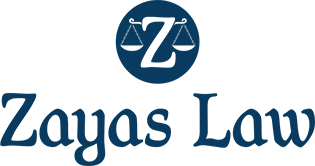Filing a personal injury claim can be complicated – and for most plaintiffs, the process invites a lot of questions. At Zayas Law Firm, we’ve been representing injured people in Hartford since 1990. Skilled at advocating for our client’s needs, our personal injury attorneys would be happy to answer any of your questions about common personal injury terms.
In this post, we’ll review some of the most common questions about personal injury lawsuits. If you have further questions, we’d be happy to perform a free initial review of your case, to ensure you’re on the right path for full and fair compensation.
18 Frequently-Asked Personal Injury Questions
- What is a “personal injury,” anyway?
“Personal injury” is a legal term that refers to physical, emotional, and mental injuries caused by negligence. Also known as a “tort,” most personal injury claims require you to prove that another party acted negligently. As one of the largest practice areas in civil law, personal injury covers a wide range of accidents, such as car accidents, slip and falls, defective products, and many others.
- What is negligence?
In most claims, you must prove that another person, group, or organization was primarily responsible for your injuries because of negligence. Whenever someone else had a “duty of care” to ensure your safety, and then failed to observe that duty, he or she may be considered negligent.
- How can I tell when I have a case?
To show that you have a case, your claim must meet these four conditions:
- Another party had a duty of care to protect you from harm.
- That party failed to perform their duty and did not act reasonably.
- You became injured and suffered serious physical, financial, and emotional losses.
- Your injuries are a direct result of the other party’s action or lack of action.
- Will my personal injury claim automatically go to trial?
No. The majority of personal injury cases never see the inside of a courtroom. If your case involves multiple complex disputes or different interpretations of the law, however, you may need to go to trial. That’s why your attorney should prepare every personal injury claim as if it were heading to court.
- What is my case worth?
The value of a personal injury case can vary greatly, as every claim is unique. In general, the more serious your injuries, the more likely you will be to receive a high settlement or verdict. From medical expenses to lost wages to psychological suffering, you can receive compensation for many different types of costs.
- What are damages?
Damages are a monetary sum awarded to injury victims in a settlement or verdict.
There are three main types of damages:
- Compensatory damages: To “make the plaintiff whole again,” or to compensate for direct medical costs, lost wages, and other expenses.
- Non-economic damages: To account for emotional trauma, loss of companionship, and other intangible losses.
- Punitive damages: To make an example of gross negligence and intentional bad behavior.
- How long does the average personal injury case take?
Because many personal injury cases do not enter litigation, your claim may not necessarily take long to resolve. However, you should keep in mind that some personal injury cases continue for up to a year or more, depending on the complexity of the claim and the volume of claims heard in court.
- Should I talk to the other party’s insurance claims adjuster?
You are not required to speak with an insurance adjuster for the defendant. Although insurance companies will try to speak directly with the plaintiff during a personal injury case, any information that you share with an adjuster can be used against you later. It’s in your best interest to have an insurer contact your attorney instead.
- Can I still receive compensation if I have a pre-existing condition?
Yes! Under the “eggshell plaintiff” doctrine, injury victims with pre-existing conditions are still entitled to receive some degree of compensation. Your final compensation may be adjusted to reflect your pre-existing condition, but you can still file a personal injury claim.
- I’m partially to blame for my accident. Can I still seek compensation?
Accidents are complicated – and sometimes, there may be multiple parties at fault. If you believe that you were partially responsible for your accident, you can still recover damages in Connecticut, provided that you meet certain conditions. This is because Connecticut observes the rule of modified comparative negligence.
- What does it mean for Connecticut to observe “modified comparative negligence”?
Comparative fault laws allow plaintiffs to file personal injury lawsuits even when they are partially responsible for their accidents. In Connecticut, however, you can only recover compensation if you are less than 51% responsible for your accident. That means it’s still important to review your case with a skilled attorney before proceeding with a claim.
- How much does a personal injury lawyer cost?
Most personal injury attorneys work on “contingency fees,” which means they are not paid until you win your case. These fees can vary but are typically a percentage of the final settlement or verdict.
- How long do I have to file my personal injury claim?
Under the Connecticut General Statutes 52-584, you have two years to file a claim, counting from the date the injury was first sustained or discovered. This is true regardless of whether your claim involves negligence or intentional wrongdoing.
- What does “pain and suffering” mean?
“Pain and suffering” is one form of non-economic damages, which can account for extreme physical and mental pain after your accident. Some states have limits or “caps” on how much you can recover for pain and suffering claims. In Connecticut, there are no caps on pain and suffering damages, which means you can ask for the full value of your claim.
- What are the benefits of hiring an attorney?
Even if your case never goes to trial, it’s a good idea to hire a personal injury attorney for your claim. From negotiating with insurers to filing the appropriate paperwork, a personal injury attorney can help you find the best path forward for your financial future.
- What happens if I’m hit by an uninsured driver?
Many car insurance policies include coverage for uninsured or underinsured motorists. However, this coverage is rarely enough for catastrophic injuries. To secure full compensation, you may need to file a claim.
- Do I have to accept an insurance settlement?
No! Insurance claims adjusters are experienced negotiators who will try to push you into accepting a premature settlement. Unfortunately, many first insurance offers are purposely low, in an attempt to profit from injury victims. At no point are you required to accept an insurer’s offer.
- What if my injuries happened in the workplace?
Did your injuries occur while you were on the job? If so, you may be eligible for workers’ compensation, which is often the only legal recourse for injured employees. In some rare instances, you may be able to file a personal injury lawsuit against a third party for their negligent actions.
Have more questions for us? Give our personal injury team a call today at (860) 854-9156 to get started!



